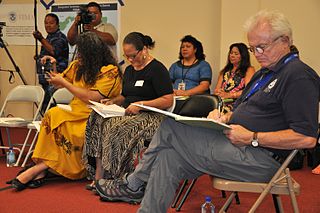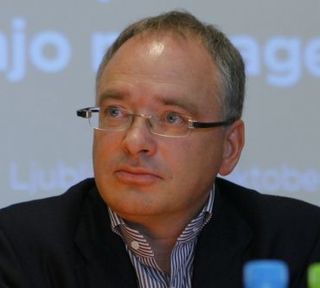
Public relations (PR) is the practice of managing and disseminating information from an individual or an organization to the public in order to influence their perception. Public relations and publicity differ in that PR is controlled internally, whereas publicity is not controlled and contributed by external parties. Public relations may include an organization or individual gaining exposure to their audiences using topics of public interest and news items that do not require direct payment. The exposure is mostly media-based, and this differentiates it from advertising as a form of marketing communications. Public relations aims to create or obtain coverage for clients for free, also known as earned media, rather than paying for marketing or advertising also known as paid media. But in the early 21st century, advertising is also a part of broader PR activities.
Communications management is the systematic planning, implementing, monitoring, and revision of all the channels of communication within an organization and between organizations. It also includes the organization and dissemination of new communication directives connected with an organization, network, or communications technology. Aspects of communications management include developing corporate communication strategies, designing internal and external communications directives, and managing the flow of information, including online communication. It is a process that helps an organization to be systematic as one within the bounds of communication.
Crisis management is the process by which an organization deals with a disruptive and unexpected event that threatens to harm the organization or its stakeholders. The study of crisis management originated with large-scale industrial and environmental disasters in the 1980s. It is considered to be the most important process in public relations.
The Association for Progressive Communications (APC) is an international network of organizations that was founded in 1990 to provide communication infrastructure, including Internet-based applications, to groups and individuals who work for peace, human rights, protection of the environment, and sustainability. Pioneering the use of ICTs for civil society, especially in developing countries, APC were often the first providers of Internet in their member countries.

Internal communications (IC) is the function responsible for effective communications among participants within an organization. The scope of the function varies by organization and practitioner, from producing and delivering messages and campaigns on behalf of management, to facilitating two-way dialogue and developing the communication skills of the organization's participants.

The Military Staff of the European Union (EUMS) is the directorate-general of the European Union's (EU) External Action Service (EEAS) that contributes to the EU's Common Security and Defence Policy (CSDP) by providing strategic advice to the High Representative (HR/VP) and commanding operations through its Military Planning and Conduct Capability (MPCC) operational headquarters. From the end of 2020, the MPCC will be capable of running executive operations of up to 2,500 troops, i.e. the size of one EU battle group, as well as 3 non-executive missions.
Corporate communication(s) is a set of activities involved in managing and orchestrating all internal and external communications aimed at creating a favourable point of view among stakeholders on which the company depends. It is the messages issued by a corporate organization, body or institute to its audiences, such as employees, media, channel partners and the general public. Organizations aim to communicate the same message to all its stakeholders, to transmit coherence, credibility and ethics.

Alberta Arnolda "Betteke" van Ruler is emeritus Professor of Communication Science at the University of Amsterdam.
The Coalition for the International Criminal Court (CICC) is an international network of NGOs, with a membership of over 2,500 organizations worldwide advocating for a fair, effective and independent International Criminal Court (ICC). Coalition NGO members work in partnership to strengthen international cooperation with the ICC; ensure that the court is fair, effective and independent; make justice both visible and universal, and advance stronger national laws that deliver justice to victims of war crimes, crimes against humanity and genocide. The CICC Secretariat is hosted by the Women's Initiative for Gender Justice and it is based in The Hague.

Loyola Polytechnic Institute is an educational institution of basic and technological education in the Dominican Republic, founded by the Society of Jesus in 1952. Its Loyola Specialized Institute of Higher Education (IEESL) grants engineering degrees at the undergraduate and graduate level in the areas of agrobusiness, electrical, industrial, and telecommunications. Its school for intermediate education offers degrees in agronomy, industrial mechanics, automotive and diesel mechanics, electrical installation & maintenance, electronic communications, and digital electronics & microcomputers. An elementary school and an English and French language school are also a part of IPL.
The International Association of Business Communicators (IABC) is a global network of communications professionals.
The European Association of Communication Directors (EACD) is a multi-field network for communication professionals across Europe. The EACD was founded in Brussels in November 2006 by over 100 in-house communicators from 23 countries. As of March 2015 it counts over 2,300 members. It organises regular regional debates across Europe on topics related to communications, and has subsets of working groups where members discuss specific issues arising from their work.

Istanbul Beykent University is a foundation university in Istanbul, Turkey, teaching in English, Russian combined and Turkish with 30.000 students.

Dejan Verčič is a communication researcher and public relations theorist.

Like other countries worldwide, HIV/AIDS is present in Ghana. As of 2014, an estimated 150,000 people infected with the virus. HIV prevalence is at 1.37 percent in 2014 and is highest in the Eastern Region of Ghana and lowest in the northern regions of the country. In response to the epidemic, the government has established the Ghana AIDS Commission which coordinates efforts amongst NGO's, international organizations and other parties to support the education about and treatment of aids throughout Ghana and alleviating HIV/AIDS issues in Ghana.

Cultural sensitivity, also referred to as cross-cultural sensitivity or cultural awareness, is the knowledge, awareness, and acceptance of other cultures and others' cultural identities. It is related to cultural competence, and is sometimes regarded as the precursor to the achievement of cultural competence, but is a more commonly used term. On the individual level, cultural sensitivity is a state of mind regarding interactions with those different from oneself. Cultural sensitivity enables travelers, workers, and others to successfully navigate interactions with a culture other than their own.
CERP – European Confederation of Public Relations is a Pan-European organization representing the national public relations and communication associations of Europe. CERP is also the European division of the worldwide organization Global Alliance for Public Relations and Communication Management.
The Excellence theory is a general theory of public relations that “specifies how public relations makes organizations more effective, how it is organized and managed when it contributes most to organizational effectiveness, the conditions in organizations and their environments that make organizations more effective, and how the monetary value of public relations can be determined”. The excellence theory resulted from a study about the best practice in public relations, which was headed by James E. Grunig and funded by the Foundation of the International Association of Business Communicators (IABC) in 1985. Constructed upon a number of middle-range theories, and tested with surveys and interviews of professionals and CEOs in the United States, the United Kingdom, Canada, and South Korea, the Excellence theory provides a “theoretical and empirical benchmark” for public relations units.
Situational Crisis Communication Theory (SCCT,), is a theory in the field of crisis communication. It suggests that crisis managers should match strategic crisis responses to the level of crisis responsibility and reputational threat posed by a crisis. SCCT was proposed by W. Timothy Coombs in 2007.

The PESO Model is a strategic framework used in marketing and public relations to categorize media into four types: paid, earned, shared, and owned. The model describes the use of different media channels in organizations' marketing approach, and has been widely adopted in the marketing communications industry.









